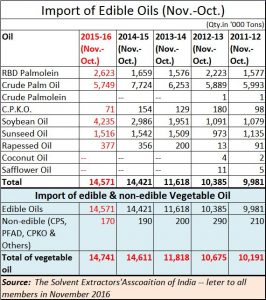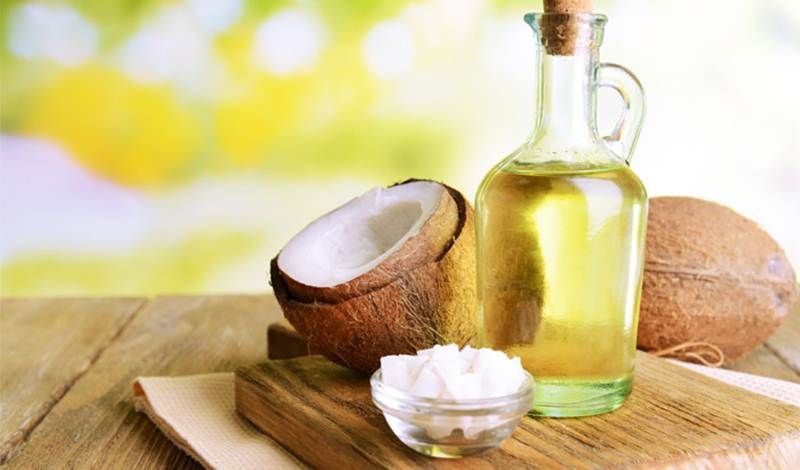http://www.freepressjournal.in/analysis/the-absurd-posturing-of-the-anti-gm-lobby/1144327
The edible oil story in India
— By | Sep 28, 2017 07:49 am
The battle-lines between the proponents of pro-GM (genetically modified) mustard seed, and anti-GM lobbies are getting drawn more sharply. Both have their arguments. But it looks like the anti-GM lobby is likely to lose ground. This is because it does not even know where it actually stands.
 In fact, a close examination of developments on the ground shows up how absurd the stand of the anti GM lobby is. And nothing brings out this absurdity as the case of mustard and other edible oils.
In fact, a close examination of developments on the ground shows up how absurd the stand of the anti GM lobby is. And nothing brings out this absurdity as the case of mustard and other edible oils.
Consider India’s edible oil imports. A significant part of it is soybean oil and rapeseed oil. What people don’t realise is that both imported oils are from GM seeds. Rapeseed oil is imported from Canada and Australia, and is a version of mustard. Sometimes, it is shown as canola imports because some countries refer to mustard oil as canola. Almost all the oil from these countries is from GM seeds, since around the turn of this century. Edible oil imports even from the US, are from GM seeds. Hence, soyabean oil which is imported from USA, and South America are also of GM origin.
It is absurd therefore to talk of the harm they will cause to humans – since we have already been ingesting oil from GM seends since around 2000. In fact, the table also shows that a bulk of the vegetable oil imported is of the edible variety, not the non-edible type.
Just listen to what B.V.Mehta, executive director, The Solvent Extractors’Association of India (SEA) had to say in November 2016: “Import of edible oil has sharply increased in last few years due to stagnant oilseed production and rising demand in the country. India’s dependence on imported oil has increased to 70% of its requirements.”
Whether one likes it or not, India has allowed itself to become import dependent as far as edible oils are concerned. Thus a country which once used to export edible oil and oil cake, is now a net importer of over two-thirds of its requirement (see table) In fact, edible oil import has become so rampant that it has left almost 50% of the seed crushing capacity in the country lying idle at the moment.
But why did India have to import edible oil? The reasons were many. But key among them were that India’s yields per acre were far too poor, and the processes followed too primitive and fragmented. India’s costs for producing edible oil, therefore, were extremely high. The government could not allow soaring edible oil prices, as it would turn off voters . Hence it resorted to imports.
One way to reverse this trend is to make the harvest of edible oil seeds profitable for farmers, without allowing oil prices in India to soar. At present the only solution which India can opt for is using GM seeds for mustard. The use of BT Cotton has already shown the bounty that the farmers have earned – in terms of quantity, quality and prices.
What is also not known is that India consumes substantial amounts of cotton seed oil – much of which comes from Bt Cotton, which is genetically modified. Moreover, if you look at the table, there is hardly any import of cotton seed oil. The GM seeds in India have ensured that there is no need to go in for import of this variety.
Clearly, banning edible oil imports will not be a solution. It will cause the prices of domestically available edible oil to soar. The answer lies in hiking the value added component in agriculture. Instead of importing GM edible oil, grow the GM seeds in India. Allow the idle capacity of crushing plants to get utilised. Make both the farmers and the crushing units more profitable.
A caveat might be in order at this stage. I – being an informed consumer – was not even aware that I was consuming edible oil from GM seeds. Yet, personally, if given a choice between GM food and non-GM food, I would like to opt for the non-GM food, just as I prefer consuming organic food. It is a preference I would like to exercise, given its appeal, notwithstanding its higher price-tag.
Obviously, banning GM seeds won’t help. Instead, the output should be declared as GM or non-GM. Let people then choose what they want. It is quite possible that the non-GM will be more expensive – just as food labeled ‘organic’ is currently more expensive. But that will be an informed decision.
GM may not be harmful. Globally, edible oil from GM soya and GM rapeseed has been consumed for over 15 years without a single documented case of adverse impact. Even so, there will be people who might want to opt for the non-GM variety. Give them the choice. Banning it is never a solution.
GM – so say critics — did not matter with cotton, because it was not ingested (never mind that cotton seed oil has been ingested all long as is other edible oil as well). But – given India’s consumption of edible oil from GM seeds — a sensible policy needs to be put in place quickly.
Making a country reliant on import is certainly not a solution. But value-adding agriculture and making it competitive is a decent solution. The sooner the government realises this, the better.



































COMMENTS